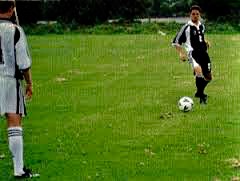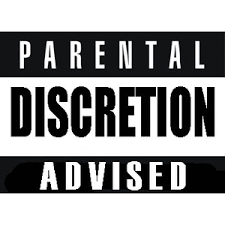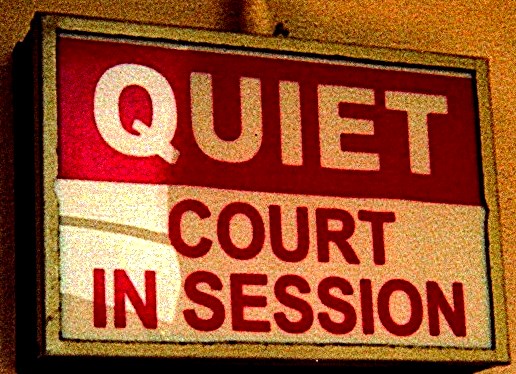A deceased husband’s frozen sperm at a fertility centre was declared to be personal property under WESA and previous case law and thus could be inherited by the widow on an intestacy.
The court in KLW v Genesis Fertility Centre 2016 BCSC 1621 ordered to release of the frozen sperm to the widow as the sole beneficiary despite the deceased not having signed the required consent under the Assisted Human Reproduction Act and it’s Regulations to create an embryo.
There was evidence that the wife and the deceased had spoken to a number of professionals of their plan to conceive a child even if he died.
The court held that the reproductive material which includes sperm, ovum and other cell or human g3ene or any part of them is a product under WESA that can pass to beneficiaries.
The fertility centre did not oppose the application and required a court order to release the sperm without the proper consent of the deceased.
The court held to deny the wife the use of the reproductive material would be both unfair and an affront to her dignity.
Is the Reproductive Material Property?
[59] In particular contexts, courts in various jurisdictions have held that human sperm or ovums stored for reproductive purposes are property: C.C. v. A. 1/1/., 2005 ABQB 219; J.C.M. v. A.N.A., 2012 BCSC 584; Lam v. University of British Columbia, 2015 BCCA 2; Yearworth v. North Bristol A/HS Trust, [2009] EWCA Civ 37; Kate Jane Bazley v. Wesley Monash IVF Pty. Ltd., [2010] QSC 118 (Queensland SCTD); Jocelyn Edwards: Re the Estate of the late Mark Edwards, [2011] NSWSC 478.
[60] In C.C. v. A.W., the parties disputed access to twins born to C.C. through a donation of sperm from A.W. Each party also claimed the four fertilized embryos that remained in a Toronto clinic. A.W. refused to consent to the release of the remaining embryos to C.C. for her use in another attempt to become pregnant.
[61] At paras. 20 and 21, the court found that A.W. had provided his sperm as an unqualified gift to C.C. to assist her to conceive children. The remaining fertilized embryos remained C.C.’s property. They were chattels she could use as she saw fit.
[62] In J.C.M. v. A.M.A., the parties, during the course of their spousal relationship, each gave birth to one child using artificial insemination from sperm provided by a single donor. When the parties separated, they entered into a separation agreement that divided all joint property of their relationship. Through inadvertence, the separation agreement did not divide the 13 remaining sperm straws stored at Genesis. Madam Justice Russell concluded that the remaining sperm straws should be treated as property for the purpose of dividing them upon the dissolution of the parties’ spousal relationship. In reaching that conclusion, Russell J. relied primarily upon C.C. and the decision of the England and Wales Court of Appeal in Yearworth v. North Bristol NHS Trust, [2009] EWCA Civ 37.
[63] In Yearworth, the Court held that stored sperm was property for the purposes of an action for negligent damage to property. The appellants were all diagnosed with cancer. They received treatment at a hospital operated by North Bristol NHS Trust and accepted advice that before undergoing chemotherapy, they could produce semen samples that the respondent would store for their future use. Before any of the appellants attempted to use the sperm, the hospital’s freezing system failed and the sperm perished.
[64] The Court of Appeal began its analysis at para. 28:
28. A decision whether something is capable of being owned cannot be reached in a vacuum. It must be reached in context; and in this section of our judgment the context is whether an action in tort may be brought for loss of the sperm consequent upon breach of the Trust’s duty to take reasonable care of it. The concept of ownership is no more than a convenient global description of different collections of rights held by persons over physical and other things. In his classic essay on “Ownership” (Oxford Essays in Jurisprudence, OUP, 1961, Chapter V) Professor Honore identified 11 standard incidents of ownership but stressed that not all of them had to be present for ownership to arise. He suggested that the second incident was “the right to use” and he added, at p.116, that:
“The right (liberty) to use at one’s discretion has rightly been recognised as a cardinal feature of ownership and the fact that… certain limitations on use also fall within the standard incidents of ownership does not detract from its importance…”
We have no doubt that, in deciding whether sperm is capable of being owned for the purpose which we have identified, part of our enquiry must be into the existence or otherwise of a nexus between the incident of ownership most strongly demonstrated by the facts of the case (surely here, the right, albeit limited, of the men to use the sperm) and the nature of the damage consequent upon the breach of the duty of care (here, their inability to use it notwithstanding that this was the specific purpose for which it was generated).
[65] In Yearworth, the Court recognized that historically, the common law did not allow any property interest in the human body, or body parts, living or dead. The Australian High Court in Doodeward v. Spence, (1908) 6 C.L.R. 406 created an exception to this rule when it recognized the right of ownership in a two-headed fetus preserved for commercial display as a curiosity. For the majority, Chief Justice Griffith held:
[W]hen a person has by the lawful exercise of work or skills so dealt with a human body or part of the body in his lawful possession that it has acquired some attributes differentiating it from a mere corpse awaiting burial, he acquires a right to retain possession of it …
[66] The Court in Yearworth held at para. 45(a) that developments in medical science “now require a re-analysis of the common law’s treatment of and approach to the issue of ownership of parts or products of a living human body, whether for present purposes (viz. an action for negligence) or otherwise.”
[67] At para. 45 (d), the Court stated that it was not content to see the common law in this area founded upon the principle in Doodeward, “which was devised as an exception to a principle, itself of exceptional character, relating to the ownership of the human corpse. Such ancestry does not commend it as a solid foundation.”
[68] At para. 45(f), the Court held that for the purposes of their negligence claims, the appellants had ownership of the sperm which they had generated and ejaculated for the sole purpose of its later use for their benefit. Although their rights to use the sperm were limited by legislation, no person other than the appellants had any right in relation to the sperm.
[69] In Yearworth, at para. 45(b), the Court of Appeal emphasized the claim concerned products of a living human body intended for use by the persons whose bodies had generated them. The Court was not asked to consider whether there was any significant difference between such claims and claims in respect of donated products intended for use by others brought by the donors or by the donees of such products.
[70] In J.C.M., Russell J., referring to Yearworth, commented at para. 63 that the need for the common law to keep up with medical science is compelling. At para. 69, she found that in the context of the dispute before her, the sperm was the property of the parties. Madam Justice Russell observed that the sperm had been treated as property by everyone involved in the transaction, including the donor, Genesis and the parties.
[71] Equally, in the case at bar, [A.B.], Genesis and the petitioner all treated the Reproductive Material as property.
[72] In Lam v. University of British Columbia, the Court of Appeal upheld the trial judge’s finding that frozen human sperm is property for the purposes of the Warehouse Receipt Act, R.S.B.C. 1996, c. 481 (“WRA”). The facts of Lam are similar to Yearworth. The respondent, Mr. Lam, was the representative plaintiff in a class proceeding against the University of British Columbia. Members of the class had cancer. Before undergoing radiation treatment, they stored their frozen sperm in the appellant’s freezer. As the result of a power failure, the stored sperm was damaged or destroyed.
[73] In Lam, Chiasson J.A., at para. 51, considered the Court in Yearworth had taken the correct approach to the development of the common law in holding that developments in medical science required a re-examination of the issue of ownership of parts or products of a living human body. However, in concurring reasons for judgment, Bennett J.A., writing for herself and Frankel J.A., emphasized at para. 110 that in Yearworth, the Court was determining whether human sperm was property in a very narrow context, and was not determining whether sperm in other contexts, such as probate or matrimonial law, could be considered property.
[74] At paras. 113 and 114, Bennett J.A. stated:
[113] The nature and scope of property interests that a person can have in human sperm need not be decided on the facts of this case. This case, unlike for example, J.C.M. v. A.N.A., 2012 BCSC 584, does not deal with competing property interests in human sperm. This case considers whether Mr. Lam, a cancer patient, has ownership of the sperm he produced, such that he can contract for its storage to enable his personal use of the sperm at a later date. If so, the sperm is property, as something must be property if it is capable of being owned. There may also exist things that are property that cannot be owned, but that is not something that needs to be decided in the context of this case.
[114] Not all of Professor Honore’s 11 incidents of ownership need to be present for ownership to arise (Yearworth at para. 28). Ownership of body parts must be contextual, and often limited by legislation because of public policy reasons. No one would argue that if a cancer patient cut her hair and stored it for the purpose of later making a wig after treatment that she did not “own” her hair in that context. On the other hand, legislation prevents the selling of sperm and organs such as kidneys, but does not prevent their donation. The prohibition on sale does not necessarily mean the legislation is inconsistent with ownership. It has provided limits to ownership in some contexts.
[75] In concluding that each of the sperm donors had sufficient ownership of their stored sperm for it to be “property” and thus “goods” within the meaning of the WRA, Bennett J.A. applied the same analytical framework as the Court had adopted in Yearworth. The donors had ejaculated the sperm; contracted to store the sperm for their own future use; paid a fee for storage; and could consent to the sperm being tested. Further, they could terminate the storage agreement; could consent to the release of the sperm to their physician to be used by their spouse; and could exclude all others from using the sperm. Although legislation or the storage agreement precluded the donors from disposing of the sperm by leaving it to someone in their will or from selling the sperm, they nonetheless had sufficient rights in relation to their own sperm for it to be defined as property.
[76] In Bazley v. Wesley Monash IVF Pty. Ltd., the applicant’s husband was diagnosed with liver cancer. Before his death, he provided a semen sample before undergoing chemotherapy. The respondent continued to store the semen samples following Mr. Bazley’s death. When the applicant requested that the respondent continue to store the sperm, a spokesperson for the respondent informed her that in the absence of specific reproductive and assisted technology legislation in Queensland, the respondent operated under national guidelines for the use of assisted reproductive technology. The guidelines provided that clinics must not store or use gametes from deceased persons unless there was a clearly expressed written directive from the donor consenting to the use of the gametes. Mr. Bazley had died without providing such a direction. The respondent informed the applicant that in the absence of such a directive, it was prevented by the guidelines from continuing to store Mr. Bazley’s sperm or using it to procure a pregnancy.











